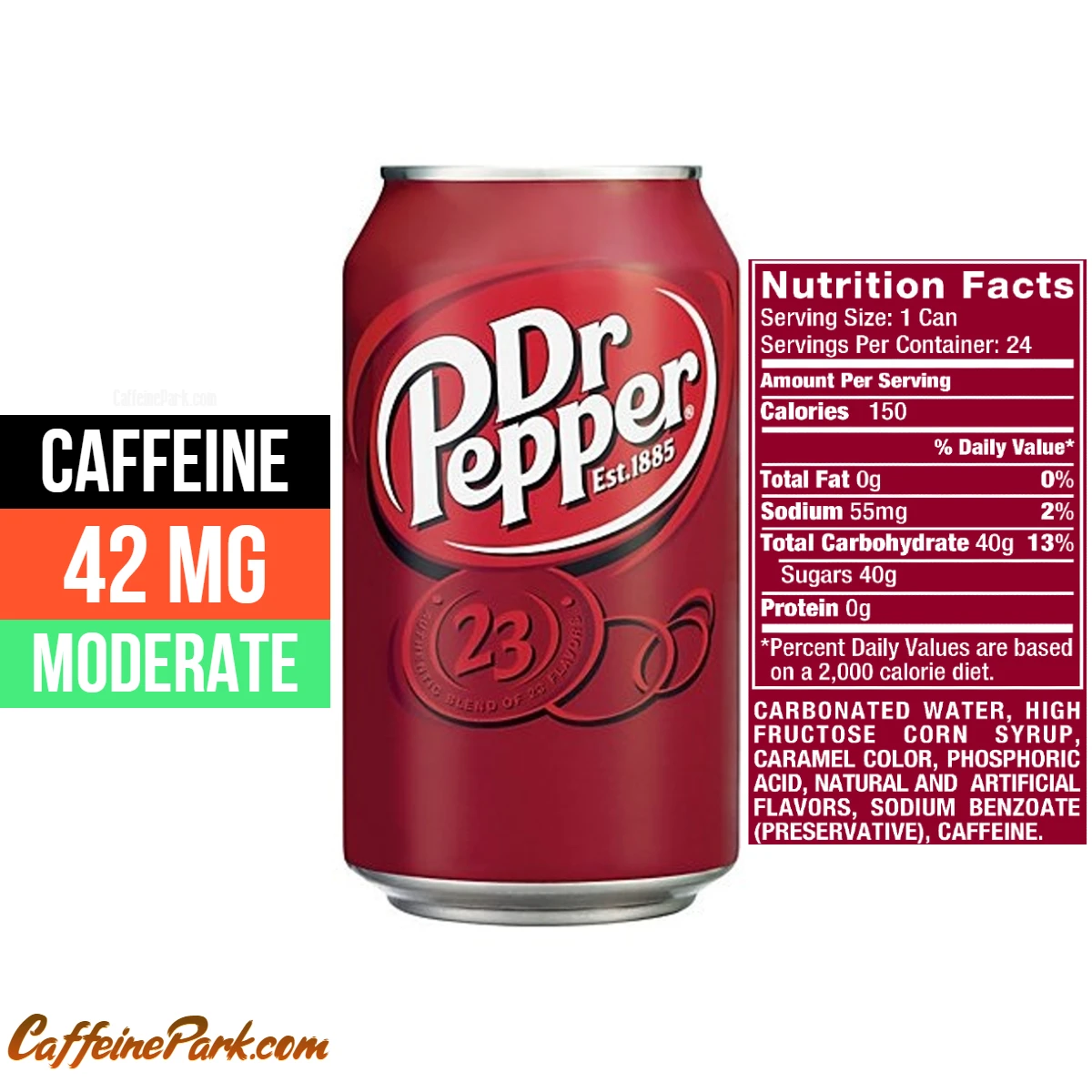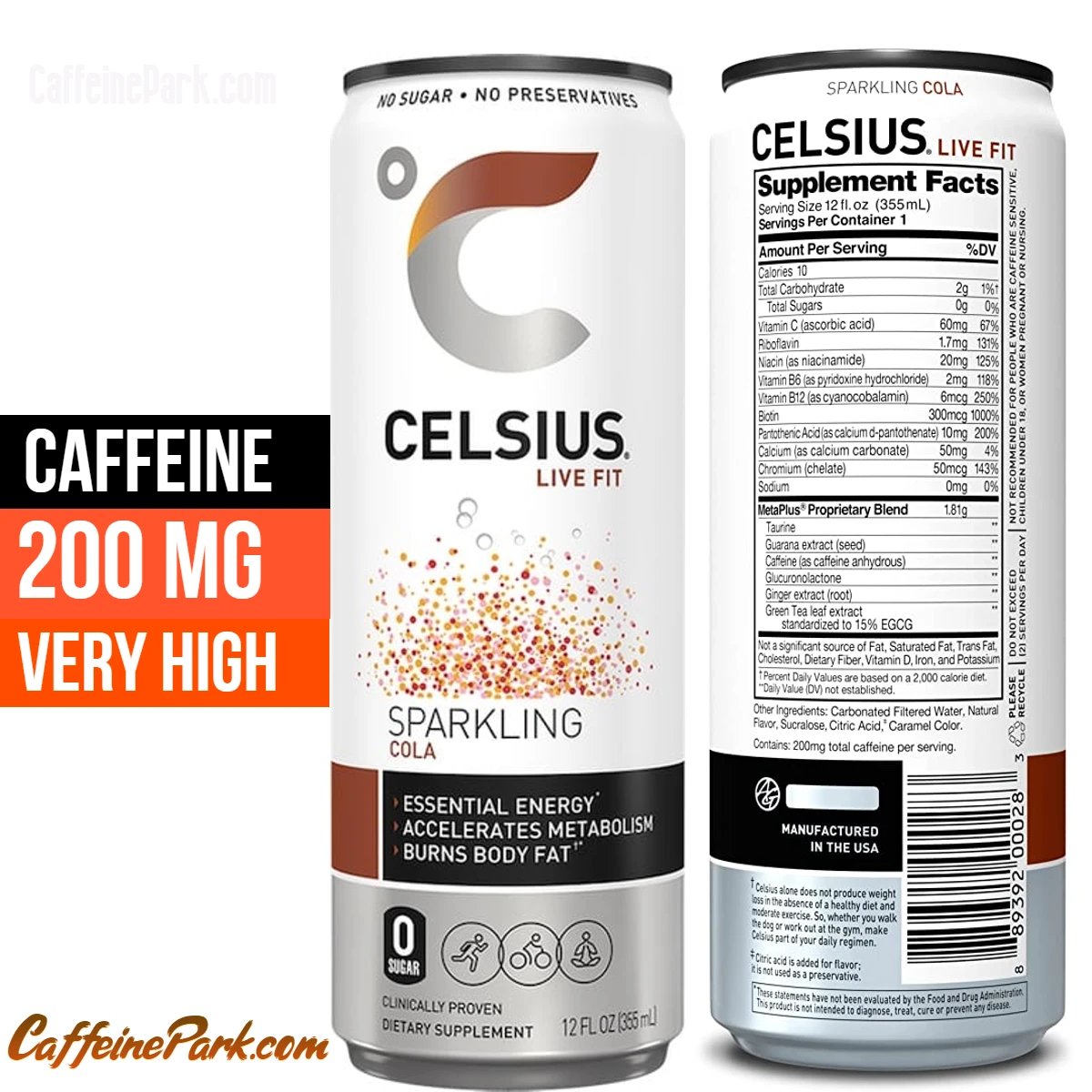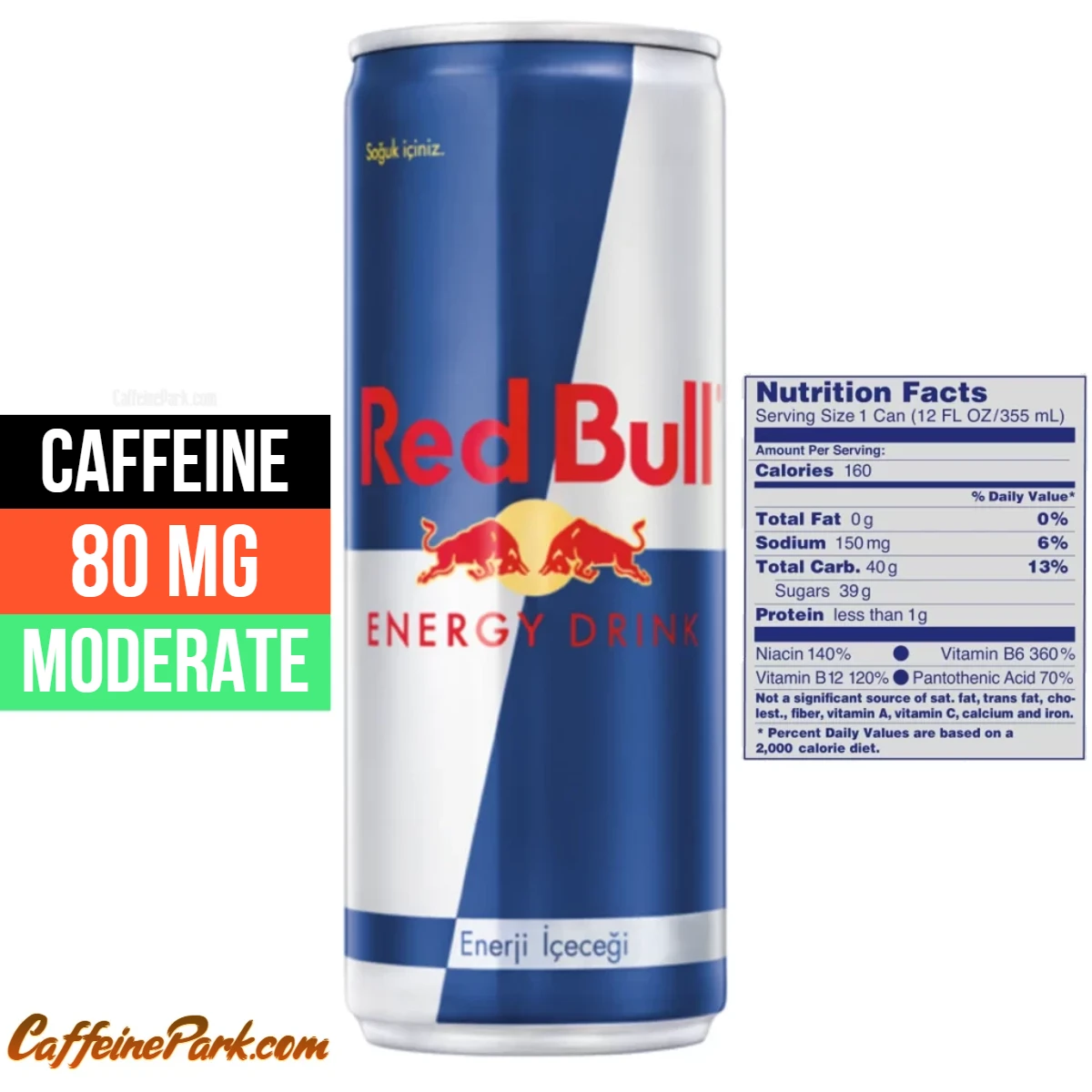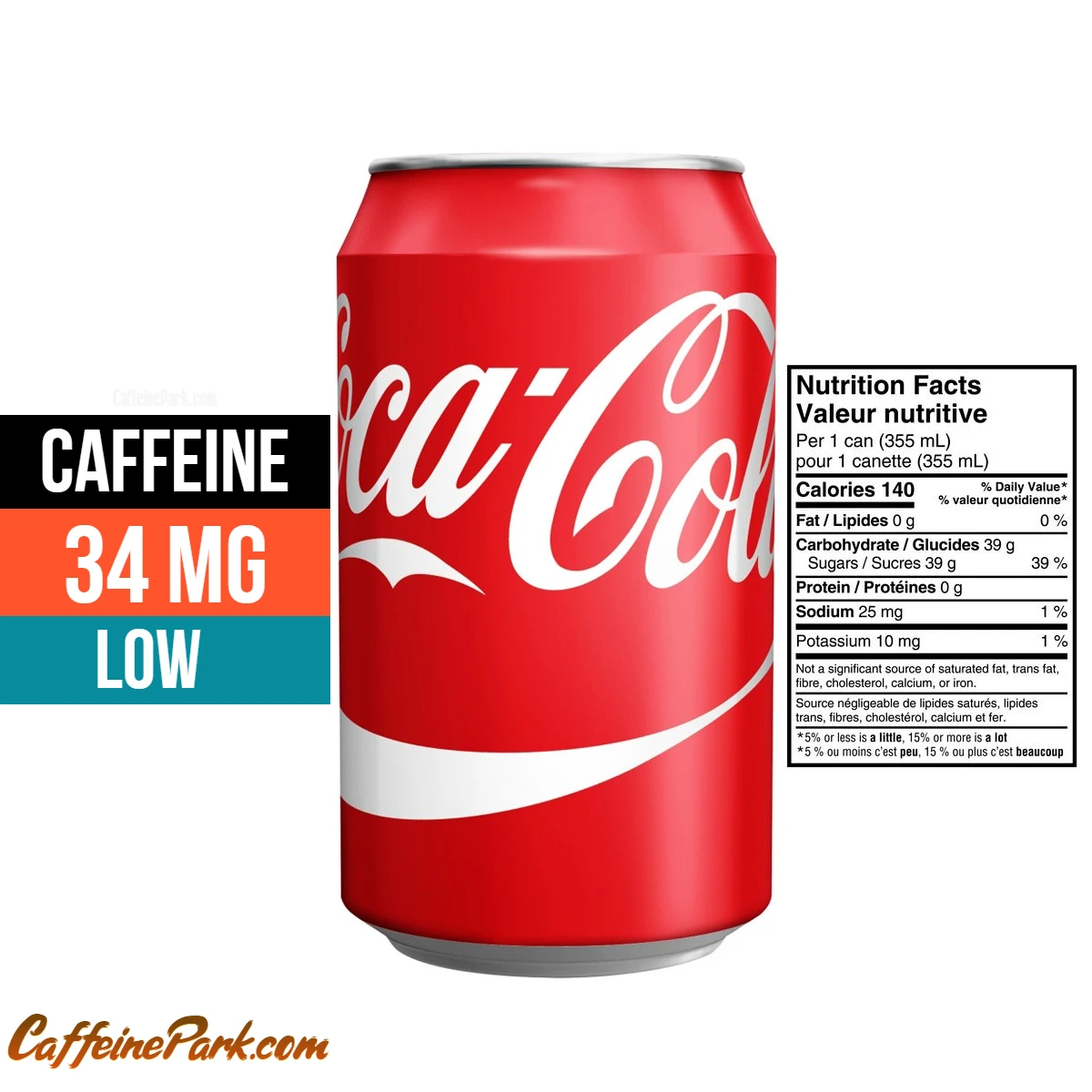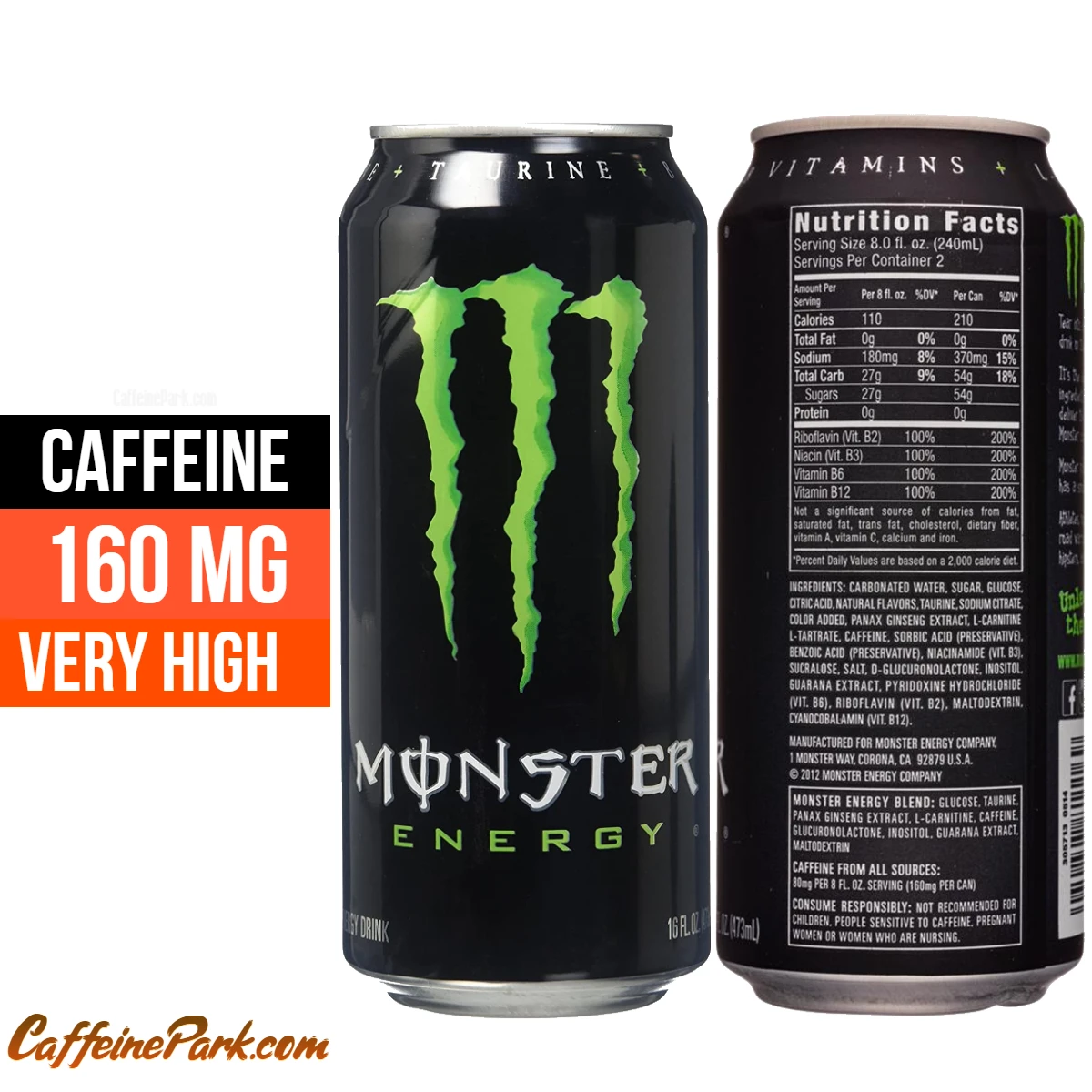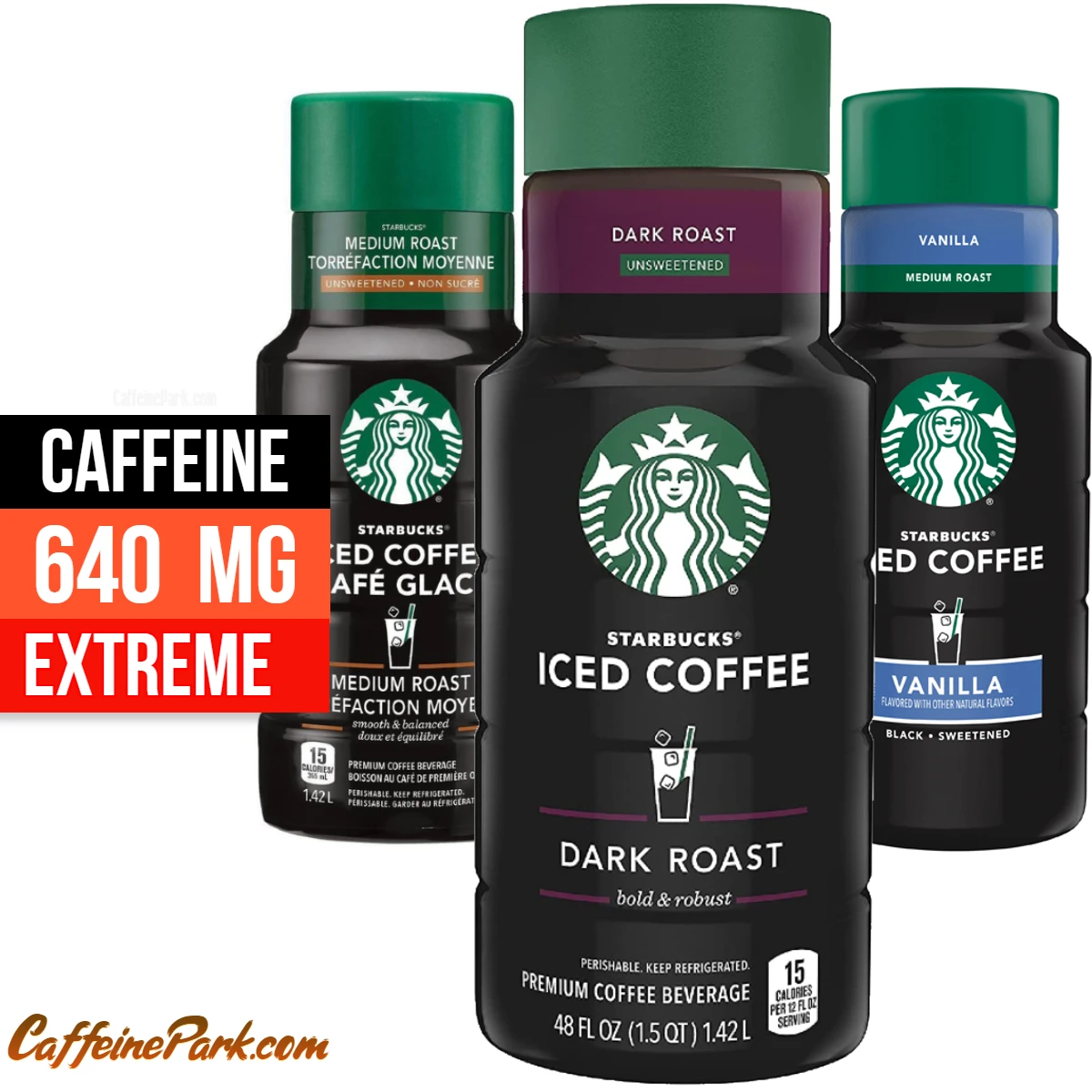Nespresso Coffee Capsules Caffeine Content
How Much Caffeine is in Nespresso Capsules various types?
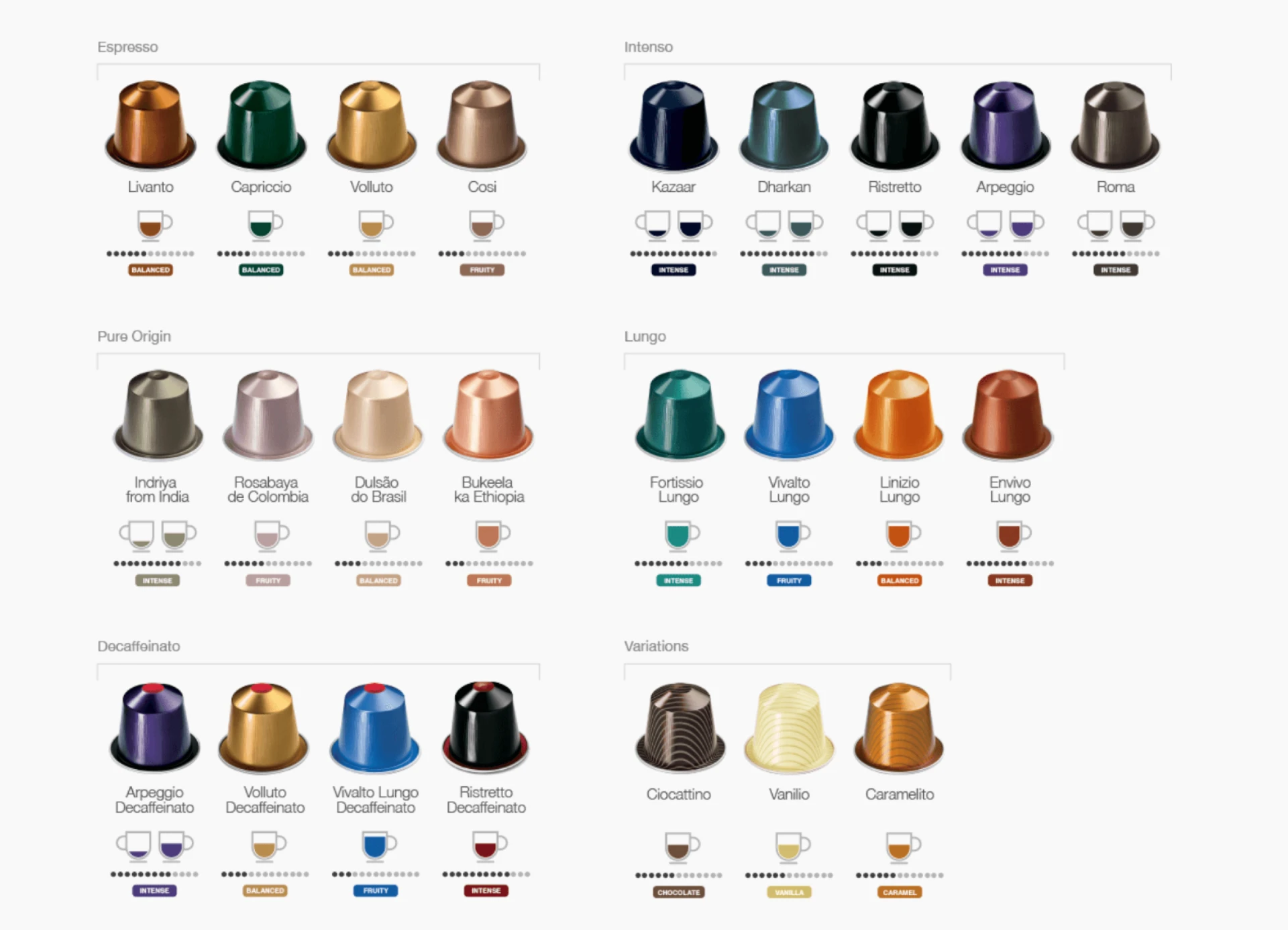
Nespresso coffee capsules are single-serve aluminum coffee pods made to use in Nespresso coffee machines (available from multiple manufacturers). They are small portioned cups that fit into the machine and are pre-flavored. Just fill your cup or mug, insert the small capsule into the machine, then press a button, and out comes freshly brewed coffee to suit you.
Each capsule is composed of a plastic base and a foil lid and is filled with finely-ground coffee beans. To brew, a pod is inserted into the machine, and water is pressurized to 9 bar. The pressure forces water through these tiny holes in the capsule, extracting flavor and oils from the beans for you to enjoy in an espresso shot or cappuccino milk foam drink.
You can choose from over 700 different varieties of Nespresso capsules including a variety of flavors and coffees. Each capsule makes one or two servings and is made up of a plastic body and lid, plus sealed aluminum cups for the coffee grounds. These aluminum cups contain real grinds that are evenly distributed during brewing for high-quality products with full flavor and aroma. The capsules are recyclable, which means that you can dispose of them easily by putting them in your recycling bin when you’re done.
Do Nespresso Capsules have caffeine?
Yes, Nespresso OriginalLine Capsules contain 60mg of caffeine per 1.35 fl oz shot and 44.44mg of caffeine per fl oz (150.3mg per 100ml).
For those who don’t need to limit their caffeine intake, there are many regular (non-decaf) Nespresso capsules to choose from. The caffeine content of these capsules can vary widely, depending on the specific blend and roast. Here is a selection of some of the regular Nespresso capsules and their corresponding caffeine levels:
- Ristretto: A short espresso with a strong, bold flavor and an intensity level of 10 out of 11. Contains approximately 83mg of caffeine per capsule.
- Arpeggio: A full-bodied espresso with a dark roast flavor and an intensity level of 9 out of 11. Contains approximately 83mg of caffeine per capsule.
- Roma: A smooth, balanced espresso with a medium roast flavor and an intensity level of 8 out of 11. Contains approximately 73mg of caffeine per capsule.
- Livanto: A smooth, balanced espresso with a medium roast flavor and an intensity level of 6 out of 11. Contains approximately 80mg of caffeine per capsule.
- Volluto: A light, smooth espresso with a sweet, fruity flavor and an intensity level of 4 out of 11. Contains approximately 72mg of caffeine per capsule.
The OriginalLine capsules are for espresso and lungo coffee. Each standard capsule contains 5 grams of coffee which delivers 60mg of caffeine per pour (average) and each Lungo capsule contains 6 grams of coffee for a caffeine content of around 81 mg of caffeine.
The OriginalLine capsules are in the upgraded coffee range. The all-rounder for those who enjoy a cup of espresso in the morning or for those who just want to unwind with an Espresso before bedtime.
| Type | Intensity | Caffeine Content Per Shot |
|---|---|---|
| Palermo Kazaar | 12 | 142mg |
| Napoli | 13 | 109mg |
| Envivo Lungo | 9 | 99mg |
| Indriva | 10 | 94mg |
| Fortissio Lungo | 8 | 85mg |
| Dulsoa | 4 | 84mg |
| Ristretto | 10 | 83mg |
| Arpeggio | 9 | 83mg |
| Dharkan | 11 | 82mg |
| Vivalto Lungo | 4 | 77mg |
| Venezia | 8 | 77mg |
| Ristretto Italiano | 10 | 75mg |
| Roma | 8 | 73mg |
| Rosabaya | 6 | 73mg |
| Volluto | 4 | 72mg |
| Bukeela | 3 | 72mg |
| Linizio Lungo | 4 | 72mg |
| Ciocattino | 6 | 72mg |
| Vanilio | 6 | 71mg |
| Capriccio | 5 | 70mg |
| Genova Livanto | 6 | 64mg |
| Firenze Arpeggio | 9 | 63mg |
| Cosi | 4 | 59mg |
Review
Nespresso is a Swiss company that produces single-serve coffee pods, or capsules, for use with their proprietary coffee machines. The capsules are available in a variety of flavors, roasts, and caffeine levels, allowing customers to choose the type of coffee that best suits their tastes. In this review, we will take a closer look at Nespresso capsules, including their flavors, roasts, and caffeine content.
Nespresso capsules are a popular choice for single-serve coffee, offering a wide range of flavors, roasts, and caffeine levels for customers to choose from. They are designed for use with Nespresso coffee machines, which are known for their consistent quality and ease of use.
However, Nespresso capsules are generally more expensive than other types of coffee pods or ground coffee, and their environmental impact may be a concern for some customers. They are not widely recyclable, and the recycling rate of the capsules is relatively low.
Customers who are considering Nespresso capsules should weigh the pros and cons of this option, and consider other alternatives such as ground coffee or reusable coffee pods. Ultimately, the best choice will depend on individual needs and preferences, including budget, convenience, flavor, and environmental impact.
Flavors and Roasts
Nespresso capsules come in a wide range of flavors and roasts, allowing customers to choose the type of coffee that best suits their tastes. Some of the flavors available include sweet and fruity options like Caramelito, Ciocattino, and Vanilla, as well as more savory options like Gianduja and Hazelino.
In terms of roasts, Nespresso offers a range of options, from light and smooth to dark and bold. The intensity level of each capsule is rated on a scale of 1 to 11, with 1 being the lightest and 11 being the strongest. Some of the most popular Nespresso capsules and their corresponding intensity levels include:
- Ristretto (Intensity: 10) – A short espresso with a strong, bold flavor.
- Arpeggio (Intensity: 9) – A full-bodied espresso with a dark roast flavor.
- Roma (Intensity: 8) – A smooth, balanced espresso with a medium roast flavor.
- Livanto (Intensity: 6) – A smooth, balanced espresso with a medium roast flavor.
- Volluto (Intensity: 4) – A light, smooth espresso with a sweet, fruity flavor.
Caffeine Content
The caffeine content of Nespresso capsules can vary depending on the specific blend and roast. Some of the regular (non-decaf) Nespresso capsules and their corresponding caffeine levels include:
- Ristretto (Approximately 83mg of caffeine per capsule) – A short espresso with a strong, bold flavor.
- Arpeggio (Approximately 83mg of caffeine per capsule) – A full-bodied espresso with a dark roast flavor.
- Roma (Approximately 73mg of caffeine per capsule) – A smooth, balanced espresso with a medium roast flavor.
- Livanto (Approximately 80mg of caffeine per capsule) – A smooth, balanced espresso with a medium roast flavor.
- Volluto (Approximately 72mg of caffeine per capsule) – A light, smooth espresso with a sweet, fruity flavor.
For those looking to limit their caffeine intake, Nespresso also offers several decaffeinated options. These include:
- Decaffeinato Intenso (Less than 0.1% caffeine by weight) – A full-bodied decaf espresso with a strong roast flavor.
- Decaffeinato Lungo (Less than 0.3% caffeine by weight) – A decaf lungo (long espresso) with a smooth, balanced flavor.
- Decaffeinato Arpeggio (Less than 0.1% caffeine by weight) – A decaf espresso with a dark roast flavor.
It’s worth noting that while these capsules are labeled as “decaf,” they may still contain small amounts of caffeine. Additionally, the actual caffeine content of your coffee will depend on the size of the serving, as well as the amount of water used to brew it.
Other Considerations
There are a few other things to keep in mind when considering Nespresso capsules. First, the capsules are designed specifically for use with Nespresso coffee machines and are not compatible with other coffee makers. This means that you will need to purchase a Nespresso machine in order to use the capsules.
Another thing to consider is the cost of the capsules. While Nespresso capsules are generally more expensive than ground coffee or other single-serve options, the convenience and consistent quality of the coffee may be worth the extra cost for some customers.
Finally, it’s worth noting that Nespresso capsules are not widely recyclable, as they are made from a combination of aluminum and plastic. Nespresso does offer a recycling program in certain countries, but it is not available in all areas. Customers who are concerned about the environmental impact of single-use coffee pods may want to consider alternative options, such as ground coffee or reusable coffee pods.
Overall, Nespresso capsules offer a wide range of flavors, roasts, and caffeine levels for coffee lovers to choose from. While they may be more expensive and less environmentally friendly than some other options, the convenience and consistent quality of the coffee may make them worth it for some customers.
Compatibility with Nespresso Machines
One of the key features of Nespresso capsules is their compatibility with Nespresso coffee machines. These machines are designed specifically to brew coffee using Nespresso capsules and are not compatible with other types of coffee pods or ground coffee.
Nespresso offers a range of coffee machines to suit different needs and budgets. Some of the options available include:
- OriginalLine Machines: These machines use Nespresso’s OriginalLine capsules and are designed for making espresso-based drinks like cappuccinos, lattes, and macchiatos.
- VertuoLine Machines: These machines use Nespresso’s VertuoLine capsules and are designed for making both espresso and larger, long coffee drinks like Americanos and Lungos.
- Professional Machines: These machines are designed for use in commercial settings, such as coffee shops and offices. They are typically larger and more expensive than home-use machines but offer a wider range of capabilities and options.
When purchasing a Nespresso machine, it’s important to make sure that it is compatible with the type of capsules you plan to use. The OriginalLine and VertuoLine capsules are not interchangeable, and can only be used with the specific machines designed for them.
Cost and Availability
Nespresso capsules are generally more expensive than other types of coffee pods or ground coffee. The exact price will vary depending on the specific blend and flavor of the capsules, as well as the location and retailer.
Nespresso capsules are widely available through a variety of retailers, including specialty coffee shops, department stores, and online marketplaces. The company also operates its own stores and websites, where customers can purchase capsules and other Nespresso products.
In addition to the upfront cost of the capsules, it’s worth considering the ongoing cost of using Nespresso capsules. Depending on how much coffee you drink and how often you need to purchase new capsules, the cost of using Nespresso capsules can add up over time.
Environmental Impact
One potential drawback of Nespresso capsules is their environmental impact. The capsules are made from a combination of aluminum and plastic and are not widely recyclable. According to Nespresso, the capsules are composed of approximately 60% aluminum and 40% plastic, which can be difficult to separate and recycle.
To address this issue, Nespresso has implemented a recycling program in certain countries. Customers can drop off used capsules at designated recycling points, or request a recycling bag to mail them back to Nespresso. The company then recycles the aluminum and plastic components of the capsules, using the aluminum to make new products and the plastic to generate energy.
However, it’s worth noting that the recycling program is not available in all areas, and even in areas where it is available, the recycling rate of Nespresso capsules is relatively low. This means that many of the capsules end up in landfills, where they can take hundreds of years to decompose.
Customers who are concerned about the environmental impact of single-use coffee pods may want to consider alternative options, such as ground coffee or reusable coffee pods. These options can be more environmentally friendly, as they do not generate waste and can be recycled or reused more easily.
Quality and Consistency
One of the benefits of using Nespresso capsules is the consistent quality and flavor of the coffee they produce. Nespresso sources its coffee beans from a variety of locations around the world and works with expert coffee tasters to develop and refine its blends.
The capsules are carefully designed and tested to ensure that they produce a consistent, high-quality cup of coffee every time. Each capsule is sealed with a foil top to preserve the freshness and flavor of the coffee, and the machines are designed to extract the optimal amount of flavor from the capsules.
In addition to the consistent quality of the coffee, Nespresso capsules are also convenient and easy to use. They require minimal setup and cleanup and can be brewed in just a few seconds. This makes them a popular choice for busy individuals or those who want a quick and easy way to make a great cup of coffee.
Customer Service and Support
Nespresso is known for its excellent customer service and support. The company offers a range of resources and support options for customers, including:
- Online resources: Nespresso’s website offers a variety of resources for customers, including product information, brewing tips, and recipe ideas.
- Phone support: Customers can contact Nespresso’s customer service team by phone for assistance with any questions or issues they may have.
- In-store support: Nespresso operates a network of stores and boutiques around the world, where customers can try out different coffee machines and capsules, and get help and advice from trained staff.
- Repairs and maintenance: Nespresso offers repair and maintenance services for its coffee machines, including a one-year warranty on most machines. Customers can also purchase extended warranties for additional protection.
Overall, Nespresso is known for its high-quality products and excellent customer service. Customers can feel confident that they will receive the support and assistance they need when using Nespresso products.
Comparison to Other Single-Serve Options
Nespresso capsules are just one of many options available for single-serve coffee. Here is a brief comparison of Nespresso capsules to some other popular single-serve options:
Keurig K-Cups:
Keurig K-Cups are a popular single-serve coffee pod option produced by the Keurig company. Like Nespresso capsules, they are designed for use with a specific type of coffee maker and are not compatible with other types of machines. Keurig K-Cups are generally less expensive than Nespresso capsules, but may not offer the same level of flavor and quality.
Tassimo T-Discs:
Tassimo T-Discs are single-serve coffee pods produced by the Bosch company. Like Nespresso capsules, they are designed for use with a specific type of coffee maker and are not compatible with other types of machines. Tassimo T-Discs are generally less expensive than Nespresso capsules and offer a wide range of flavors and types of coffee.
Ground coffee:
Ground coffee is a more traditional option for making coffee, and it allows customers to choose their own beans and brewing method. It is generally less expensive than coffee pods and can be more environmentally friendly if it is packaged in a recyclable or compostable material. However, it requires more time and effort to brew than single-serve coffee pods.
Overall, there are pros and cons to each of these single-serve coffee options. Customers should consider their needs and preferences, including budget, convenience, flavor, and environmental impact when deciding which option is best for them.
Comparing caffeine and intensity ratings of Nespresso OriginalLine capsules
| Type | Caffeine Content Per Shot |
|---|---|
| Scuro | 73mg |
| Caramel Crème Brulee | 62mg |
| Vanilla Éclair | 62mg |
| Cocoa Truffle | 62mg |
| Chiaro | 49mg |
Comparing caffeine and intensity ratings of Nespresso OriginalLine Barista Creations capsules
| Type | Intensity | Caffeine Content Per Shot |
|---|---|---|
| Indonesia | 8 | 72mg |
| Ethiopia | 4 | 65mg |
| Nicaragua | 5 | 65mg |
| Colombia | 6 | 64mg |
| India | 11 | 55mg |
Comparing caffeine and intensity ratings of Nespresso OriginalLine Origins capsules
As you can see, the Kazaar blend comes out on top with approximately 142mg of caffeine per capsule. Whereas the humble Cosi trails in last place at 59mg of caffeine per espresso shot.
Caffeine in Nespresso Nespresso Coffee Capsules VertuoLine
- VertuoLine Espresso: 40ml per 1.35oz
- VertuoLine Double Espresso: 80ml per 2.7oz
- VertuoLine Gran Lungo: 150ml per 5oz
- VertuoLine Coffee (mug): 230ml per 8oz
- VertuoLine Alto: 414ml per 14oz
Just like for the OriginalLine Pods, factors such as the ratio of Arabica to Robusta Coffee, as well as the distinct bean variations will affect the final caffeine content.
In the market, you will be able to find around 35 different types of varieties in Nespresso capsules in Nespresso OriginalLine. There are currently 13 different varieties of capsules in Nespresso Vertuoline. We’ve listed their specified caffeine content in the tables below.
Caffeine in Espresso (40ml) Coffee Capsules
| Type | Intensity | Caffeine Content |
|---|---|---|
| Voltesso | 4 | 85mg |
| Altissio | 9 | 85mg |
| Diavolitto | 11 | 150mg |
Comparing caffeine and intensity ratings of Nespresso VertuoLine Espresso (40ml)
Nespresso Gran Lungo (150ml) Coffee Capsules
| Type | Intensity | Caffeine Content |
|---|---|---|
| Aflorazio | 4 | 135mg |
| Arondio | 6 | 135mg |
| Fortado | 8 | 200mg |
Comparing caffeine and intensity ratings of Nespresso VertuoLine Gran Lungo (150ml)
Nespresso Coffee Capsules per Mug / Coffee (230ml)
| Type | Intensity | Caffeine Content |
|---|---|---|
| Solelio | 2 | 165mg |
| Giornio | 4 | 165mg |
| Elvazio | 4 | 165mg |
| Half Caffeinato | 5 | 70mg |
| Melozio | 6 | 165mg |
| Hazelino | 6 | 165mg |
| Caramelizio | 6 | 165mg |
| Vanizio | 6 | 165mg |
| Odacio | 7 | 165mg |
| Stormio | 8 | 165mg |
| Intenso | 9 | 165mg |
Comparing caffeine and intensity ratings of Nespresso VertuoLine Mug / Coffee (230ml)
Nespresso Coffee Capsules Alto (414ml)
| Type | Intensity | Caffeine Content |
|---|---|---|
| Dolce | 4 | 190mg |
| Intenso | 7 | 190mg |
FAQs
The caffeine content in Nespresso Capsules varies depending on the type of coffee. The range is typically between 59mg to 142mg per 1.35 fl oz shot. Please refer to the specific breakdown provided earlier for detailed information on individual capsules.
The Nespresso Capsule with the highest caffeine content is Palermo Kazaar, containing approximately 142mg of caffeine per shot.
Yes, Nespresso offers capsules with lower caffeine content. Some examples include Cosi with approximately 59mg of caffeine, and Genova Livanto and Firenze Arpeggio with around 64mg and 63mg respectively.
The caffeine content in Nespresso Capsules can vary, but generally, they contain a similar or slightly higher amount of caffeine compared to regular brewed coffee. However, the actual caffeine content can depend on factors such as brewing strength and serving size.
The caffeine content in Nespresso coffee is primarily determined by the specific blend and roast of the capsule. While you can’t directly adjust the caffeine content, you can choose capsules with higher or lower caffeine levels based on your preference.
Nespresso strives to maintain consistency in the caffeine content of their capsules. However, slight variations can occur due to factors such as the specific beans used and any adjustments made to the blend over time.
Are there decaf Nespresso capsules available?
Yes, Nespresso does offer several decaffeinated options for those who want to limit their caffeine intake. These include:
- Decaffeinato Intenso (Less than 0.1% caffeine by weight) – A full-bodied decaf espresso with a strong roast flavor.
- Decaffeinato Lungo (Less than 0.3% caffeine by weight) – A decaf lungo (long espresso) with a smooth, balanced flavor.
- Decaffeinato Arpeggio (Less than 0.1% caffeine by weight) – A decaf espresso with a dark roast flavor.
It’s worth noting that while these capsules are labeled as “decaf,” they may still contain small amounts of caffeine. The actual caffeine content of your coffee will depend on the size of the serving, as well as the amount of water used to brew it.
How does the caffeine content of Nespresso capsules compare to other types of coffee?
The caffeine content of Nespresso capsules is similar to that of other types of coffee, including ground coffee and coffee pods from other brands. A standard serving of coffee (8 ounces or 237 milliliters) generally contains around 80-100mg of caffeine, although this can vary depending on the type of coffee, the roast, and the brewing method.
Espresso-based drinks like those made with Nespresso capsules tend to have more caffeine per serving than drip coffee or other types of coffee. This is because espresso is made by forcing hot water through a small amount of finely ground coffee, which concentrates the flavors and caffeine.
Can I adjust the caffeine content of my Nespresso coffee by using more or less water?
To a certain extent, you can adjust the caffeine content of your Nespresso coffee by using more or less water. However, the effect of this will depend on the specific blend and roast of the capsule you are using, as well as the size of the serving.
As a general rule, using more water will dilute the coffee, resulting in lower caffeine content. Using less water will result in a stronger, more concentrated coffee with higher caffeine content. However, it’s worth noting that changing the amount of water used to brew your coffee will also affect the flavor and strength of the coffee, so you may need to experiment to find the right balance for your tastes.
Are there any side effects of caffeine in Nespresso capsules?
Like any other source of caffeine, Nespresso capsules can cause side effects in some people, particularly if they are sensitive to caffeine or consume large amounts of it. Some of the potential side effects of caffeine include:
- Insomnia or difficulty sleeping
- Increased heart rate and blood pressure
- Headaches or migraines
- Nervousness or jitters
- Stomach upset or indigestion
It’s worth noting that these side effects are generally more likely to occur in people who are sensitive to caffeine or who consume large amounts of it. The recommended daily intake of caffeine for adults is generally around 400mg, which is equivalent to about four cups of coffee.
Can I get a caffeine-free Nespresso coffee?
If you are looking for a completely caffeine-free coffee option, Nespresso does offer a variety of herbal and fruit-based infusions that do not contain any caffeine. These include:
- Herbal Teas: Nespresso offers a range of herbal teas made from a variety of ingredients, including chamomile, mint, and lemongrass. These teas do not contain any caffeine and are a relaxing, caffeine-free option.
- Fruit Infusions: Nespresso also offers a range of fruit infusions made from a variety of ingredients, including apple, blackcurrant, and peach. These infusions do not contain any caffeine and are a refreshing, caffeine-free option.
It’s worth noting that these infusions are not made from coffee beans, and do not have the same flavor or strength as coffee. However, they are a good option for those who are looking for a caffeine-free drink or who want to try something different.
Are there any health benefits to caffeine in Nespresso capsules?
While caffeine can cause side effects in some people, it can also have some potential health benefits when consumed in moderate amounts. Some of the potential health benefits of caffeine include:
- Increased alertness and focus: Caffeine is a stimulant that can help to increase alertness and focus, making it a popular choice for those who need to stay awake or concentrate on a task.
- Improved physical performance: Caffeine has been shown to improve physical performance in some studies, particularly in endurance sports like running and cycling. It may help to increase stamina and reduce fatigue, making it easier for athletes to perform at their best.
- Reduced risk of certain diseases: Some studies have suggested that caffeine may have a protective effect against certain diseases, including Parkinson’s disease, Alzheimer’s disease, and some types of cancer. However, more research is needed to confirm these findings.
It’s worth noting that the health benefits of caffeine are generally most pronounced when it is consumed in moderate amounts and that high levels of caffeine can cause side effects and negative health impacts. The recommended daily intake of caffeine for adults is generally around 400mg, which is equivalent to about four cups of coffee.
Can children consume caffeine from Nespresso capsules?
Caffeine is generally not recommended for children, as their bodies are still developing and may be more sensitive to the effects of caffeine. The American Academy of Pediatrics (AAP) recommends that children and adolescents consume no more than 100mg of caffeine per day. This is equivalent to about one cup of coffee.
If you are considering giving Nespresso capsules or other sources of caffeine to your child, it is important to talk to your healthcare provider first. Your healthcare provider can help you to determine the right amount of caffeine for your child, based on their age, weight, and overall health.
What are Nespresso capsules?
Nespresso capsules are small, single-serving pods of ground coffee that are designed for use with Nespresso coffee machines. Nespresso capsules come in a wide variety of flavors and roasts, ranging from light and fruity to dark and bold. They are a convenient way to brew a single serving of espresso or other coffee-based drinks, without the need for measuring or grinding beans.
How do I use Nespresso capsules?
To use Nespresso capsules, you will need a Nespresso coffee machine. Simply follow these steps:
- Fill the water tank of your Nespresso coffee machine with fresh, cold water.
- Place a Nespresso capsule in the capsule holder of your coffee machine.
- Choose the size of your serving and the type of coffee you want to brew (espresso, lungo, etc.).
- Press the start button to begin the brewing process.
- Once the coffee is brewed, discard the used capsule and enjoy your coffee.
It’s worth noting that different Nespresso coffee machines may have slightly different instructions, so it is a good idea to consult the user manual for your specific machine.
How long do Nespresso capsules stay fresh?
Nespresso capsules are designed to be used within a few months of their production date. While the capsules may still be usable after this time, the quality and flavor of the coffee may begin to degrade.
It is a good idea to check the expiration date on your Nespresso capsules and use them before they expire. If you have a large number of capsules and are not able to use them all before they expire, you may want to consider storing them in an airtight container in a cool, dry place to extend their shelf life. However, it is still generally recommended to use the capsules within a few months of their production date for the best quality and flavor.
What types of coffee can I make with Nespresso capsules?
Nespresso capsules are designed for use with Nespresso coffee machines, which are capable of brewing a wide variety of coffee-based drinks. Some of the types of coffee you can make with Nespresso capsules include:
- Espresso: A small, concentrated coffee that is brewed using high pressure and a small amount of water.
- Lungo: A longer, less concentrated coffee that is brewed using a larger amount of water.
- Americano: A coffee made by diluting an espresso with hot water, similar to drip coffee.
- Cappuccino: A coffee made with espresso, steamed milk, and milk foam.
- Latte: A coffee made with espresso and steamed milk, with a small amount of milk foam.
It’s worth noting that the specific flavors and types of coffee available with Nespresso capsules will depend on the specific blends and roasts that are offered by the company.
Are Nespresso capsules recyclable?
Nespresso has a recycling program in place for its capsules, called the “Nespresso Recycling Program.” Under this program, customers can recycle their used Nespresso capsules by returning them to a Nespresso store or by using a special recycling bag that is provided by the company.
The recycling process for Nespresso capsules involves separating the aluminum from the coffee grounds and other organic materials. The aluminum is melted down and reused, while the coffee grounds and other materials are composted.
It’s worth noting that the recycling rate for Nespresso capsules is relatively low, with only a small percentage of capsules being recycled. This has led to criticism from some environmental groups, who argue that the capsules are not environmentally friendly and contribute to waste.
Can I use third-party capsules with my Nespresso coffee machine?
Nespresso coffee machines are designed to be used with Nespresso-branded capsules only. While it is possible to use third-party capsules with some Nespresso machines, this is not recommended and may void the warranty of your machine.
Using third-party capsules with your Nespresso machine may result in poor performance, clogs, or other issues. It may also lead to a lower quality of coffee, as third-party capsules may not be held to the same quality standards as Nespresso-branded capsules.
Read More:
Contents
- Do Nespresso Capsules have caffeine?
- Review
- Comparison to Other Single-Serve Options
- Comparing caffeine and intensity ratings of Nespresso OriginalLine capsules
- Comparing caffeine and intensity ratings of Nespresso OriginalLine Barista Creations capsules
- Caffeine in Nespresso Nespresso Coffee Capsules VertuoLine
- Caffeine in Espresso (40ml) Coffee Capsules
- Nespresso Gran Lungo (150ml) Coffee Capsules
- Nespresso Coffee Capsules per Mug / Coffee (230ml)
- Nespresso Coffee Capsules Alto (414ml)
- FAQs
- Are there decaf Nespresso capsules available?
- How does the caffeine content of Nespresso capsules compare to other types of coffee?
- Can I adjust the caffeine content of my Nespresso coffee by using more or less water?
- Are there any side effects of caffeine in Nespresso capsules?
- Can I get a caffeine-free Nespresso coffee?
- Are there any health benefits to caffeine in Nespresso capsules?
- Can children consume caffeine from Nespresso capsules?
- What are Nespresso capsules?
- How do I use Nespresso capsules?
- How long do Nespresso capsules stay fresh?
- What types of coffee can I make with Nespresso capsules?
- Are Nespresso capsules recyclable?
- Can I use third-party capsules with my Nespresso coffee machine?
